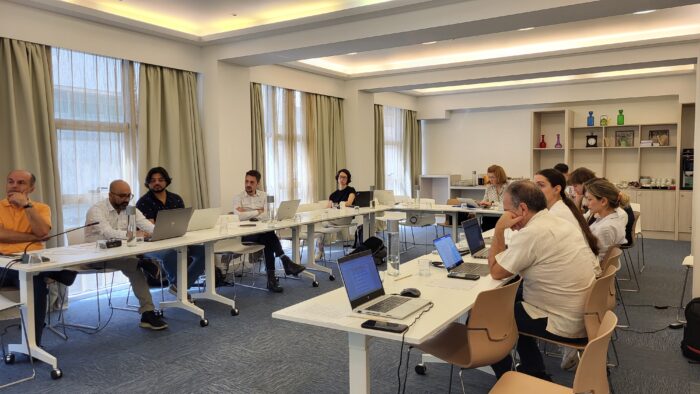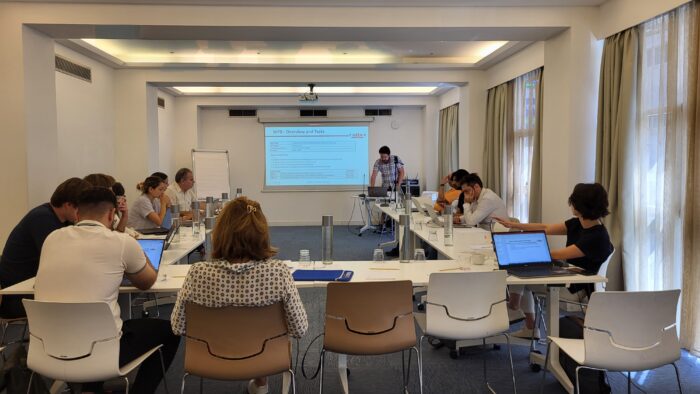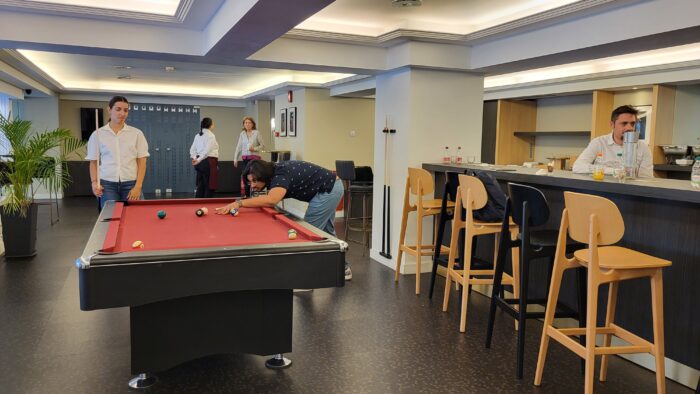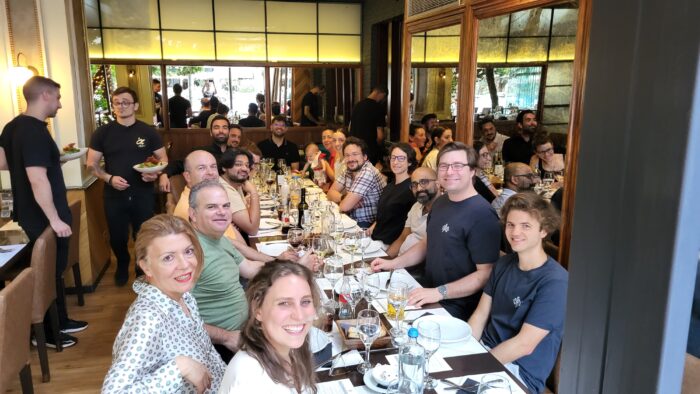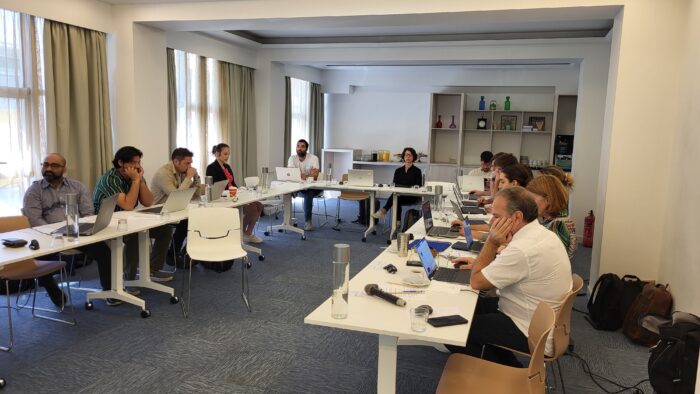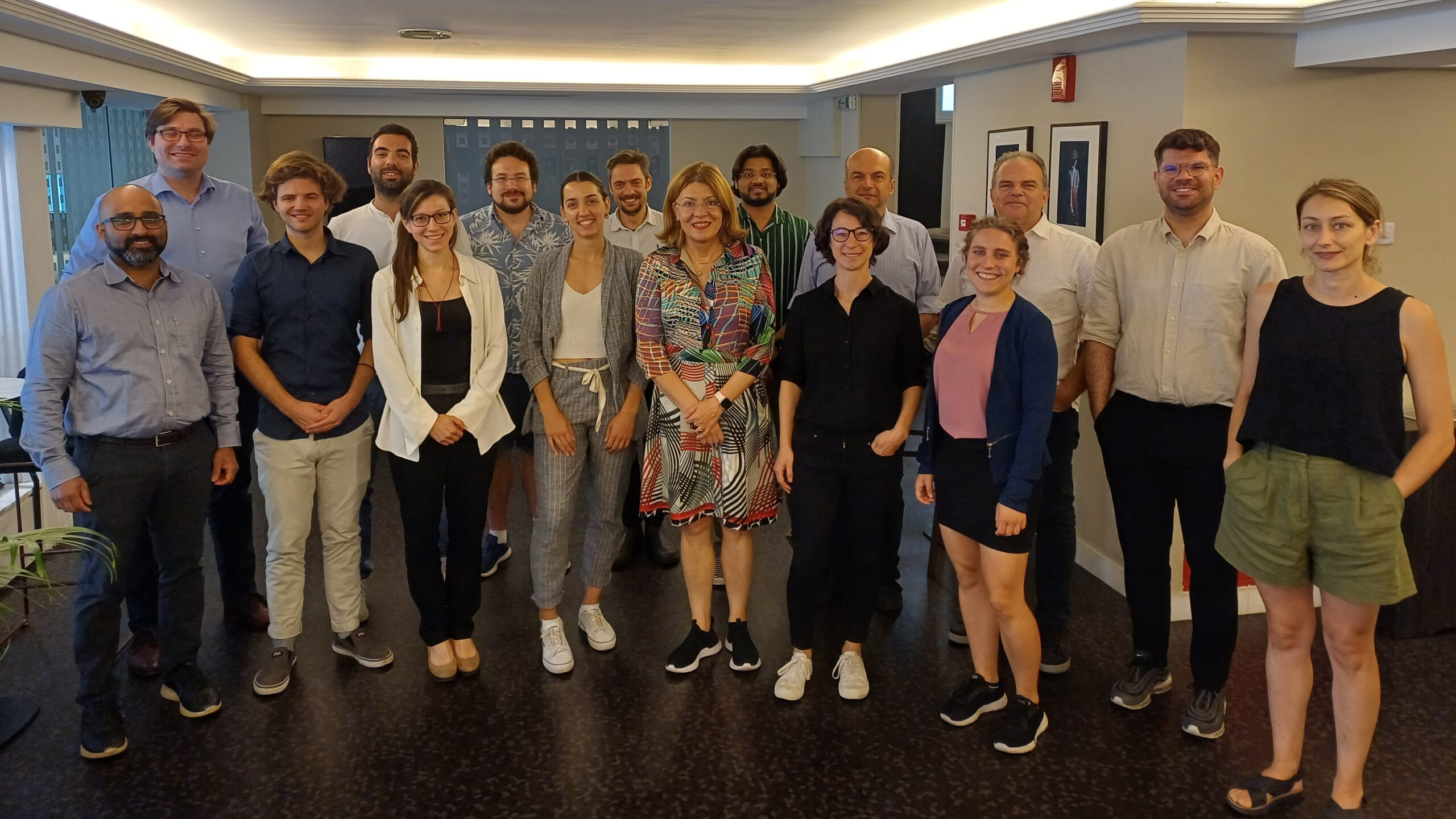3 years behind us: Tumor-LN-oC Consortium M36 meeting in Athens
June 25, 2024During 17-18 June 2024, the Tumor-LN-oC Consortium met in Athens for the Tumor-LN-oC Month 36 consortium meeting! With the Greek sun beaming outside, we had a full agenda:
On the first day, we had an internal consortium meeting during which all partners presented their project activities from the last 6 months, and shared new insights in order to identify common challenges, and brainstorm solutions. After lively discussions with all participants during agenda sessions and coffee breaks, some strategic decisions were taken to ensure that all developed technological modules will be able to be seamlessly integrated into the final OoC (Organ-on-Chip) platform. After the formal program for the day, we enjoyed a traditional Greek dinner and the chance to network with partners.
On the second day, the consortium presented the key progress updates to the European Commission and external reviewer in the M36 review meeting, showcasing the advancements made towards Tumor-LN-oC project objectives and intended impacts in the previous 1.5 years. We’re proud that we could present some significant progress and breakthroughs in the development of individual platform technologies, including:
- the microfluidic chip, pumps and artificial cilia actuator which allow to create and sustain a unique tumor-lymph node co-culture to mimic as closely as possible the in-vivo environment,
- the microoptics module and connected software which will monitor the cell migration on the chip,
- the mid-IR photothermal spectroscopy module which will further characterise any detected migrating cells,
- the bioprinting hard- and software, which allows to place cells with precision and build 3D structures inside the chip’s chambers,
- the biological work with cells and tissues, for which more than 60 tissue samples from primary patient lung tumors and the corresponding lymph nodes have been collected by the Bioacademy in Athens for validation experiments within the project and beyond.
We received some helpful feedback and recommendations which will certainly improve the quality and cohesiveness of our activities. Looking forward to the next (and final) 1.5 years, we still have a lot of work to do but we are ready to tackle any challenges that might arise in the integration of the platform technologies into the assembled prototype and proof of concept demonstration via a series of validation experiments!
At the end of the project, we aim to have a TRL5 protype of the integrated platform, with a successful demonstration that it can automatically monitor and detect, as well as characterise any cell migration on the microfluidic chip. We will validate the platform for 2 use cases – metastasis diagnosis and drug testing – so it could serve not only to researchers to study tumor-lymph node crosstalk, but also be considered as a tool for personalised medicine of cancer patients.
We would like to thank our partner RAYFOS for hosting us in Athens, and for the for the good collaboration between all partners which allows us to drive the project forward!
